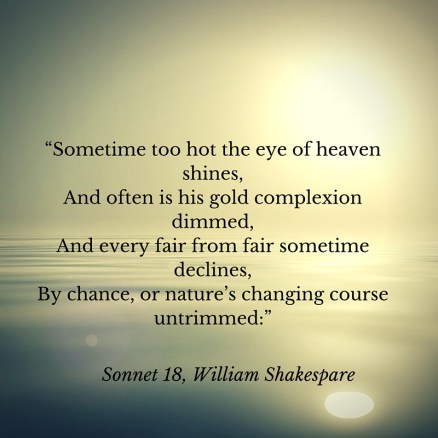What Does Anastrophe Mean
Anastrophe is a literary device that refers to the inversion of the typical word structure of a sentence. This literary device is also known as inversion. Here, the syntactical order of the subject, verb and object may be changed to create a dramatic impact or add emphasis.
Anastrophe can be created by placing an adjective after the noun (a lady wise and virtuous), a verb before the subject (speaks the lady) or a noun before a preposition (between worlds). This effect can also be achieved by changing the places of other words.
For example,
He was shocked. – Shocked, he was.
She has made a beautiful tapestry. – A beautiful tapestry she has made.
He has betrayed us. – Betrayed us, he has.
Examples of Anastrophe in Literature
“Sometime too hot the eye of heaven shines,
And often is his gold complexion dimmed,
And every fair from fair sometime declines,
By chance, or nature’s changing course untrimmed:”
– “Sonnet 18” by William Shakespeare
Note how the verbs have been used at the end of lines to create a rhyming effect. The syntactically correct order of these lines should be something like this: sometimes the eye of heaven shines too hot, and his gold complexion is often dimmed….
“Presently my soul grew stronger; hesitating then no longer,
“Sir,” said I, “or Madam, truly your forgiveness I implore;
But the fact is I was napping, and so gently you came rapping,
And so faintly you came tapping, tapping at my chamber door,
That I scarce was sure I heard you”—here I opened wide the door;—
Darkness there and nothing more.”
– “The Raven” by Edgar Allen Poe
Edgar Allen Poe also uses inversion in this famous poem. The phrase, ‘truly your forgiveness I implore’ is an inversion of ‘I truly implore your forgiveness.’ He also uses the adverbs gently and faintly at the beginning of the phrase. “so gently you came rapping,”
“If’t be so, For Banquo’s issue have I fil’d my mind,
For them the gracious Duncan have I murther’d,
Put rancors in the vessel of my peace
Only for them, and mine eternal jewel
Given to the common enemy of man,
To make them kings -the seed of Banquo kings!
Rather than so, come, Fate, into the list,
And champion me to the utterance!”
– “Macbeth” by William Shakespeare
In this excerpt, Shakespeare uses anastrophe or inversion to portray the confusion and conflict in Macbeth’s mind. This also adds further dramatic effect to the play.
“I will arise and go now, and go to Innisfree,
And a small cabin build there, of clay and wattles made;
Nine bean rows will I have there, a hive for the honey bee,
And live alone in the bee loud glade.”
-“Lake Isle of Innisfree” by William Butler Yeast
The technique of anastrophe can be observed in this poem. In the second line, the adjectives have been used after the main phrase and in the third line the positions of the subject and object have been reversed.
